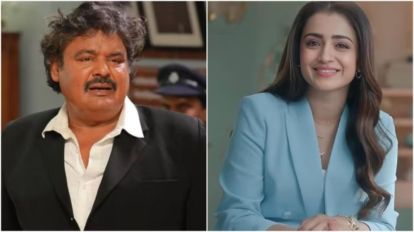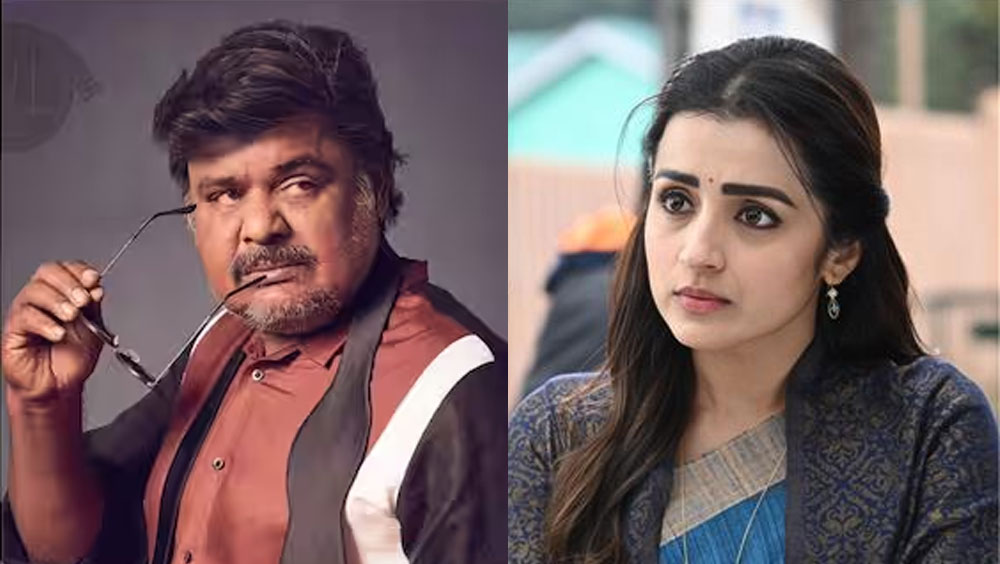Controversial Remarks Spark Legal Action Against Actor Mansoor Ali Khan

Controversial Remarks Spark Legal Action Against Actor Mansoor Ali Khan
In a startling turn of events, a case has been filed against actor Mansoor Ali Khan under the Indian Penal Code (IPC) section dealing with sexual harassment. The controversy erupted after Khan made inappropriate remarks directed at actor Trisha Krishnan, prompting the Chennai Police to take legal action.
The contentious comments were made by Khan during a public appearance, where he expressed regret over not having the opportunity to film a ‘bedroom scene’ with Trisha. Shockingly, he went on to mention that he had previously participated in numerous ‘rape scenes.’ The remarks drew swift criticism, but Khan, unapologetic, responded defiantly, stating, “Do I look like someone who’ll apologize?”
The legal action against Mansoor Ali Khan underscores the serious nature of his comments, which have been deemed inappropriate and offensive. The case, filed under a relevant IPC section addressing sexual harassment, signals a growing intolerance for such statements that can perpetuate a culture of disrespect and insensitivity.

Trisha Krishnan, a popular actor in the South Indian film industry, became the focal point of Khan’s controversial remarks. The incident has reignited discussions about the responsibility of public figures and the impact of their words on societal norms.
Critics argue that Khan’s comments not only objectify Trisha but also trivialize sensitive subjects such as sexual harassment and assault by referring to them in a casual manner. The legal proceedings against the actor are seen as a measure to hold him accountable for perpetuating harmful narratives that can contribute to the normalization of inappropriate behavior.
The controversy has sparked debates on the boundaries of artistic expression and the responsibility of individuals in the entertainment industry. While creative freedom is valued, there is a growing consensus that it should not be exercised at the expense of promoting harmful stereotypes or making light of serious issues like sexual violence.
Social media platforms have played a significant role in amplifying public outrage over Khan’s remarks. Many users have called for a boycott of the actor and demanded a public apology. The incident has also led to discussions about the need for stricter guidelines within the entertainment industry to prevent the dissemination of content that may be offensive or perpetuate harmful stereotypes.

The legal action against Mansoor Ali Khan highlights the potential consequences that public figures may face for making statements that are considered inappropriate or offensive. It serves as a reminder that freedom of expression comes with responsibilities, especially when one’s words have the potential to influence public opinion and perpetuate harmful narratives.
Trisha Krishnan, who found herself at the center of this controversy, has not yet publicly responded to Khan’s remarks or the subsequent legal action. However, her silence has not diminished the significance of the case, which has become a focal point for discussions on the need for greater accountability in the entertainment industry.
As the case unfolds, it is likely to set a precedent for how such incidents are handled in the future. The legal proceedings against Mansoor Ali Khan may prompt a reevaluation of the existing legal framework surrounding offensive speech and harassment, with potential implications for public figures who cross the line in their public statements.
The controversy surrounding Mansoor Ali Khan’s remarks has also prompted introspection within the entertainment industry. Industry professionals, including actors, directors, and producers, are being called upon to advocate for a more respectful and inclusive creative environment. The incident has shed light on the importance of fostering a culture that discourages inappropriate language and behavior, recognizing the influential role the industry plays in shaping societal attitudes.
Public sentiment on social media reflects a collective desire for change within the industry. Hashtags condemning Mansoor Ali Khan’s comments have trended, with users expressing not only their dissatisfaction with the actor but also their expectations for a more responsible and conscientious entertainment sector. This incident has become a catalyst for a broader movement advocating for increased awareness and sensitivity in storytelling, emphasizing the potential impact on viewers and society as a whole.
Legal experts are closely monitoring the case, as it could set a precedent for how the law addresses offensive remarks made by public figures. The nuanced challenge lies in balancing the right to freedom of expression with the responsibility to avoid perpetuating harmful narratives. The outcome of this case may influence future legal considerations and discussions around the need for clearer guidelines within the legal framework to address instances of verbal misconduct and inappropriate comments.

As the controversy unfolds, it serves as a stark reminder that public figures, regardless of their profession, are under increased scrutiny for their words and actions. The incident has sparked a broader conversation about the societal responsibilities of those in the public eye and the potential consequences for failing to uphold ethical standards. It remains to be seen how this case will impact the dynamics of the entertainment industry and whether it will lead to more stringent measures to prevent the propagation of offensive content.
In conclusion, the case against Mansoor Ali Khan serves as a stark reminder of the power and impact of words, especially when spoken by individuals with influence and reach. The incident has ignited a broader conversation about the responsibility of public figures, the boundaries of creative expression, and the need for accountability in the face of controversial remarks.




